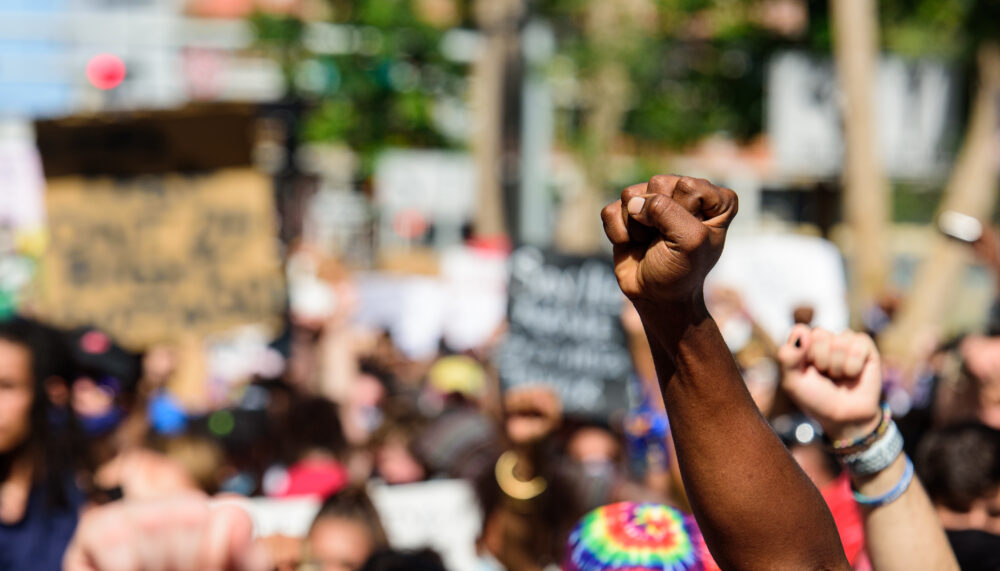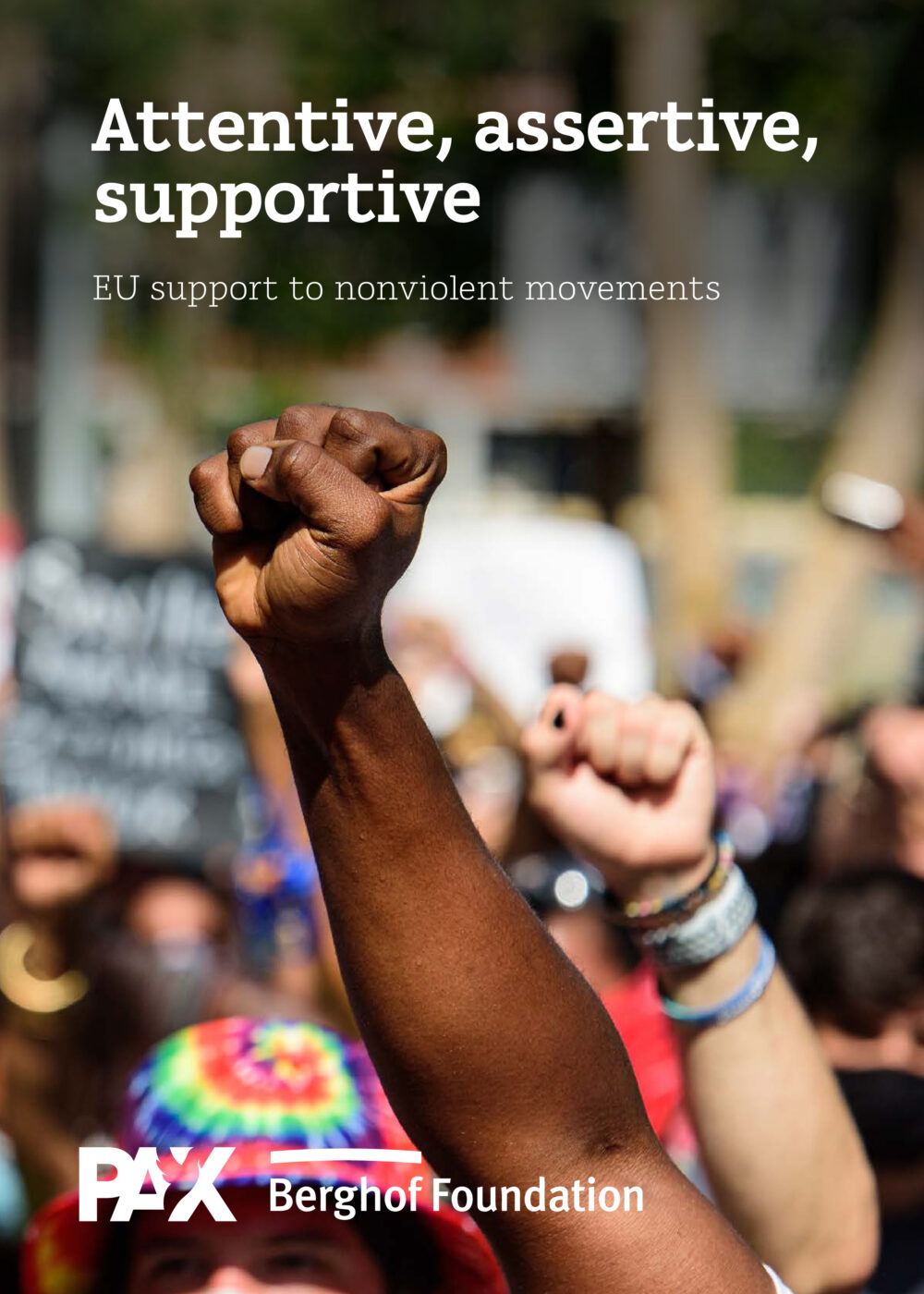BLOG POST | 25 Oct 2022
Matching aspirations, missing connections
PAX and Berghof launch report that calls for EU support to nonviolent movements

The Berghof Foundation and PAX brought the voice of nonviolent movements to Brussels to call on the EU to support their work for peaceful and democratic change.
By Francesc X. Teodoro Alandete, Véronique Dudouet
The ongoing uprising in Iran is a current example of the rising number of nonviolent protest movements around the world in recent years. Although the future and outcome of this movement are yet to be determined, research shows that nonviolent protest movements can play a role in fostering peaceful and democratic change. External support is crucial in monitoring, protecting, connecting and empowering popular movements, but under certain circumstances, it can also have unintended consequences by weakening the internal legitimacy of grassroots activists.
In September, PAX and the Berghof Foundation launched a report on the value of nonviolent movements as drivers for peaceful reform processes and on possibilities for EU support for these movements, at a roundtable event in Brussels. They gathered experts and practitioners from the peacebuilding, development, and democratisation sector at Quaker House to discuss EU external action regarding peaceful protest movements.

Although the European Parliament had commissioned a study about EU assistance to nonviolent movements for human rights and democracy already in 2009, the issue has ever since waxed and waned in European debates. Despite their emphasis on peaceful means to address conflict, promote development and advance democracy, voices of nonviolent protest movements have not been mainstreamed in EU forums. Hence, this event sets a precedent as it revamped the discussion around diplomatic, technical and financial support to those movements. At the roundtable, researchers, NGO practitioners and EU policymakers analysed challenges ahead but also indicated avenues for cooperation between European institutions and nonviolent movements.
The roundtable identified various obstacles for the EU to assist nonviolent protest movements despite their increasing presence around the world. As these movements are dynamic and evolving actors, attendees discussed how these dynamics hampers a more systematic and sustained engagement by EU actors. Their ever-changing needs and policy objectives never fall under a one singular EU institution. In addition, a guiding framework to define which movements should be supported is lacking, due to the big variety of their demands, their organisational features, and also their strategies.
Moreover, the agendas pursued by social movements are largely perceived as politicised, especially when framed through radical claims and slogans. Supporting street protests while sitting in intergovernmental institutions can easily be weaponised by other states, and thus imperil EU diplomatic ties. Participants warned about the unintended consequences which direct support for nonviolent movements might bring about for European foreign policy. In most cases, peaceful protest movements are decentralised organisations that are grounded in unstable or volatile contexts. As a result, their leadership might be co-opted by other political forces and shift towards claims misaligned with EU priorities. Taken together, this can explain parts of the institutional reluctance to openly support nonviolent movements.
Nevertheless, the participants at the discussion also welcomed the initiatives which are proposed in the report to overcome these challenges, and they agreed that there is “room to run" in Brussels corridors – should the EU institutions proceed concertedly. Several experts pointed out the legacy of EU public engagement and support for peaceful pro-democracy movements, for example during the Euromaidan movement in Ukraine, or the 2018 protests in Armenia which President Pashinyan stems from. Research also found that nonviolent movements do not solely benefit from direct funding: Building networks to connect isolated movements globally, and to unite scattered groups locally, can also enhance their effectiveness and leverage. The discussants pointed out that this is a task for which the EU is perfectly fit, as EU Delegations already promote conversations among civil society actors in many contexts. They also proposed that the EU could indirectly collaborate with nonviolent movements by monitoring their activity and investing in further research on avenues to protect and enhance civic space.
Brussels-based offices have also channelled financial assistance to unregistered movements in the past and, as the report illustrates, the EU has increasingly incorporated civil society and non-state actors into its development agenda. Building on these findings, the roundtable discussion mapped out concrete entry points to enhance EU support to nonviolent movements. Whilst direct funding might be out of question, partnership agreements could pave the way for greater interaction between social movements and European institutions. Participants at the discussion highlighted the benefits of setting up a coordination mechanism or a dedicated facility to improve awareness and capacity within EU Delegations to engage and interact with nonviolent movements outside EU borders.
Nonviolent movements have been the heartbeat for democratic reforms, sustainable development, and peaceful conflict transformation around the world. At the same time, these three areas are placed at the heart of the EU’s values and aspirations. That is why the roundtable closed with a strong call encouraging EU institutions to further explore the ideas that the report investigates, and to implement more attentive engagement with and assertive support for peaceful protest movements.
Media contact
You can reach the press team at:
+49 (0) 177 7052758
email hidden; JavaScript is required


